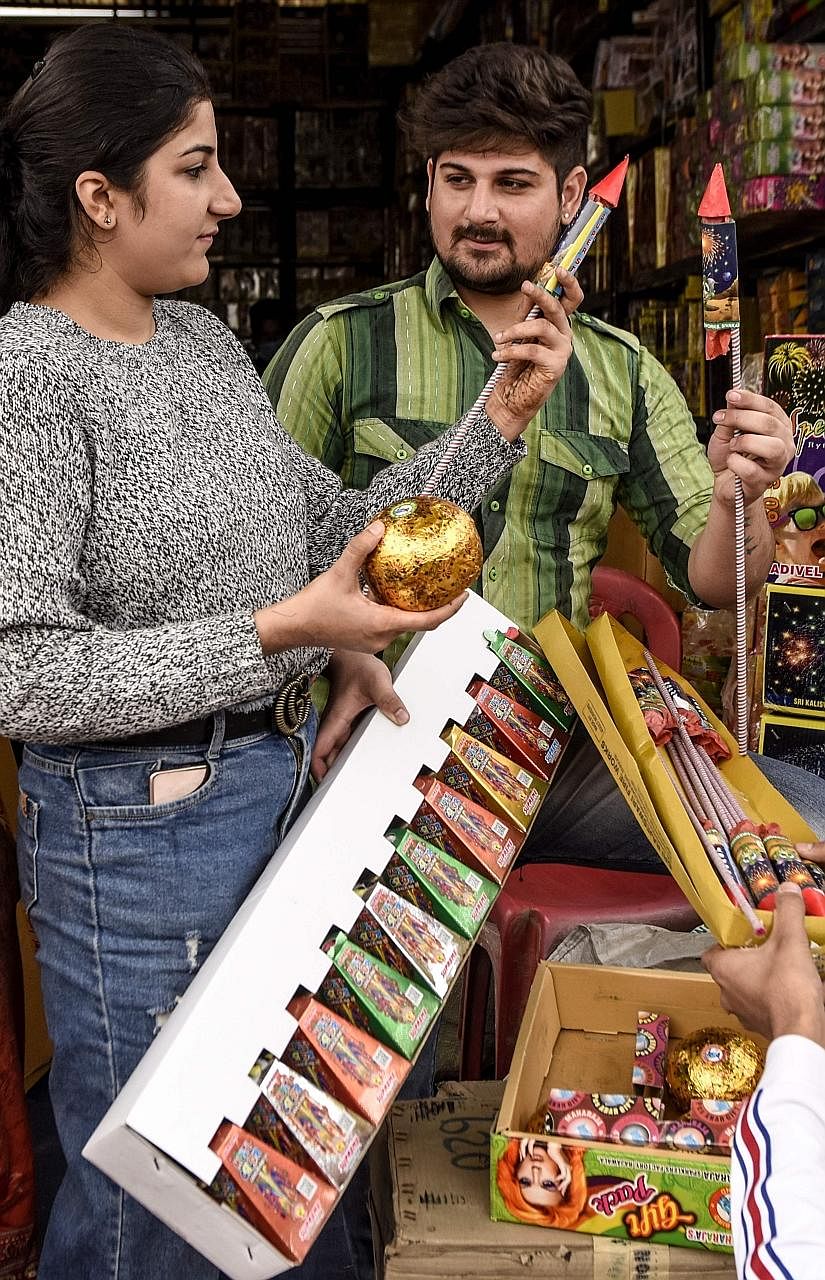Deepavali is not just India's most widely celebrated festival, but also the country's largest shopping event. This year, Indian industry and the government are hoping the festival will revive an economy still reeling from the Covid-19 pandemic.
Fearing that the air pollution from firecrackers, which are set off in the millions during Deepavali, will worsen the pandemic, several states, including Haryana, Karnataka, Maharashtra, Rajasthan and West Bengal, have restricted or banned their sale and use.
On Monday, the National Green Tribunal, a dedicated environmental court, ordered a ban on all firecrackers in all cities and towns proven to have poor air quality. "Citizens are entitled to breathe fresh air," said the court.
Celebrations this year also carry the threat of a spike in Covid-19 infections. Reported cases plummeted in recent weeks but some epidemiologists say this is more a result of unreliable testing. The public health authorities worry that mass gatherings will become super-spreader events.
On Oct 6, India's Health Ministry issued guidelines on preventive measures during festivities, which include physical distancing, mandatory face masks, and caps on the number of people attending large events. But these cautions have largely been ignored.
"I'm tired of social distancing for eight months. I was good during all the festivals till now.
"Now, enough, I want to play taash (gambling with cards) like we do every Diwali. We'll wear masks," said Mr Deepank Tiwari, a start-up founder in Delhi, who has invited 20 relatives and friends for a party. The festival is called Diwali in northern India.
The government hopes to distract Indians starved of social mingling with retail therapy.
On Monday, Prime Minister Narendra Modi urged people to buy Indian products.
He said: "Celebrating Diwali with local products will give a new boost to the economy."
The Indian economy is expected to contract this year for the first time in about four decades, as a result of the pandemic and the months-long lockdown imposed earlier in the year.
However, corporate profits and the stock market have recovered faster than expected. A good monsoon has raised hopes of a spike in rural consumer demand.

Festivities have given a boost to the automobile industry that has been on a downward spiral for nearly a year, with worker layoffs and unsold inventory. Car sales improved significantly in October compared with last year, according to the Society of Indian Automobile Manufacturers. Deep discounts, government subsidies, and the growing preference for personal vehicles over public transport during the pandemic have helped.
Gold sales usually shine brighter around Dhanteras, the first day of the festival, which is considered an auspicious time by Hindu families to buy gold and silver. But gold buying has so far been nearly 50 per cent lower than last year.
As shoppers largely avoid malls and supermarkets, online shopping has exploded. E-commerce giants Amazon and Walmart-owned Flipkart, who usually see their biggest sales in India around the festival, earned about US$3.5 billion (S$4.72 billion) in the first four days of their flagship sale events last month.
Making its debut this year is JioMart, owned by Mr Mukesh Ambani, the country's richest man and head of Reliance Industries. In the past year, it has got billions in funding and technological backing from Facebook and Google.
Annual bonuses are usually given to employees during Deepavali, and some manufacturers have said they will not cut them. But employers in hard-hit services, media, real estate and hospitality industries have postponed or cancelled bonuses.
"We only distributed sweets and a small gift bag with household items. I told my guys to manage till 2021, when we'll see a bright morning," said a cement supplier to a major construction company.
The central government and some state governments like Rajasthan, Uttar Pradesh, Tamil Nadu and Haryana have approved bonuses, hoping to stoke consumer spending.
